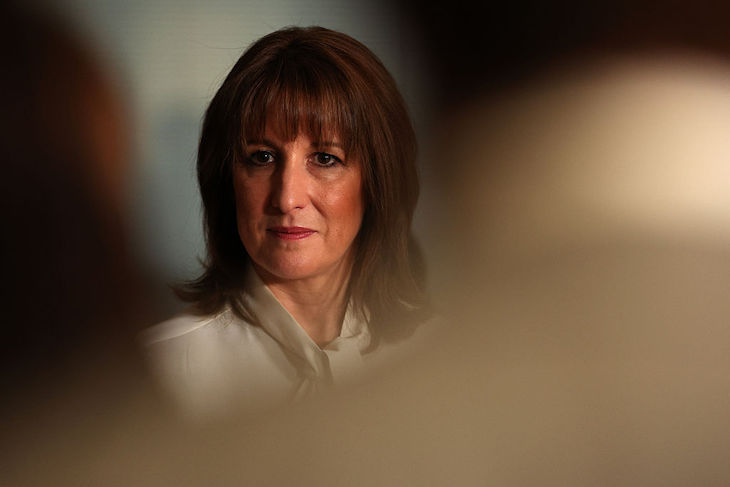I think we will look back on this week as one of the most pivotal of this government. It was the moment when Keir Starmer and Rachel Reeves revealed themselves.
This week’s Budget showed clearly what Reeves’s revealed preferences are – and what they are not
When we were all trying to work out what Theresa May really thought about Brexit, her chief negotiator Oliver Robbins privately told his team they should be guided by her ‘revealed preferences’. This week’s Budget showed clearly what Reeves’s revealed preferences are – and what they are not. Growth is not, as the government keeps claiming, its top priority. Growth was downgraded for every year after this one, and the Chancellor made almost no mention of it in her speech on Wednesday. The cost of living, despite what Starmer and Reeves say, is not a priority either. Average household disposable incomes are set to rise by just 0.25 per cent by the end of this parliament. And protecting ‘working people’ was not top of their list. A million people will be dragged into paying a higher rate of tax by 2030, and a similar number into paying the basic rate. Meanwhile, the benefits bill will soar by £70 billion over the next few years. By their actions shall ye know them.
The information just released, which shows that the Office for Budget Responsibility told Reeves there was no black hole in her finances as early as 31 October, several days before she made a speech signalling that she would have to put up income tax, proves that these were choices she made, not decisions which were forced up on her. The OBR’s decision to downgrade productivity growth was a big hit to the Treasury, but it was more than compensated for by a higher tax take from rising wage growth.
In order to justify a splurge of spending on the pet projects of the Labour left, Reeves needed the fiction that her hand was being forced by the OBR and a decade of Tory failure. But this fiction is now threatening Starmer’s position (and, as a consequence, hers). Had the centre been stronger, imagine the speech the chancellor could have made on Wednesday:
‘A year ago, I raised tax by £40 billion to tackle the problems left behind by a decade of Conservative failure. I said I would not have to return to make further tax rises. No one believed me. I’ve been told there was a £30 billion black hole in our nation’s finances. But I can stand before you today and say Labour has steadied the ship. The process of national renewal has begun. And, after a year of careful stewardship of the economy, we are in a much better place. There is no need to touch income tax. The freeze in thresholds will end, as planned, in 2028. Some of my Labour colleagues also made demands that I reverse the two-child benefit cap. I say now as I said to them before that the best way to tackle child poverty is to strengthen our economy. If we expect working people to make sacrifices in the national cause, we must ask the same of those on benefits…’
This would have been the truly radical thing to do – and would have been welcomed by voters who just want the Westminster psychodrama to stop ruining their lives. Thursday’s front pages would have been very different and, bluntly, Labour MPs who think the leadership is a shambles would have had to face up to the fact that some progress had been made, that the public is more likely to be persuaded to vote Labour again if they govern competently and frugally, than if they indulge the party’s worst tax-and-spend impulses. It was an opportunity missed. Reeves constructed her own bed of nails and now we must all sleep on it.
The fact that every briefing, half-briefing, nod and wink in the run-up to the Budget was based on a false premise will enrage Westminster journalists. Labour will pay a price for that. Once you start misleading the media on such an industrial scale, it is hard for it to give you the benefit of the doubt again. But let’s be honest: that is of no consequence to voters. What they will notice is that their taxes are rising and people down their road are still not working but can afford an extra night in the pub each week. Labour MPs can bask in the warm glow of their self-righteousness this week, but they may be in for a rude shock when they start knocking on doors again.
One quick counterpoint. Just because this is economically irresponsible and born of weakness, the Reeves strategy might not be totally nuts for Labour. Plenty of pollsters I speak to believe that the way back for Starmer is to unite the left and win back the voters who have crossed to the Greens or Your Party (or whatever the Corbynistas are calling themselves this week). But it does sound the death knell of Labour as the party of the white working class. They are the most enraged by people on their street who refuse to work and instead game the benefits system, seeing immigrant families with large numbers of children looked after by the state. It is the metropolitan, university-educated left, which wants to signal its virtue by welcoming a boost to benefits, that is now Labour’s core market.
It’s been a significant week, however you cut it.
Subscribe to Evening Blend here, for in-depth political analysis from our team in Westminster, delivered at 6 p.m. every weekday








Comments